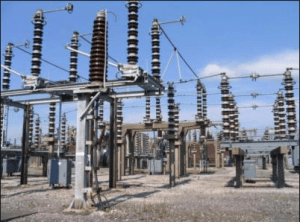Lack of stable electricity holding back 40% of businesses operating in least developed countries – UNCTAD
 More than 40 per cent of businesses operating in least developed countries are held back by inadequate, unreliable and unaffordable electricity, the United Nations Conference on Trade and Development’s (UNCTAD) 2017 report on least developed countries has said.
More than 40 per cent of businesses operating in least developed countries are held back by inadequate, unreliable and unaffordable electricity, the United Nations Conference on Trade and Development’s (UNCTAD) 2017 report on least developed countries has said.
According to UNCTAD, the issue is affecting economic and infrastructural developments in those countries.
The report further says, on the average, the countries suffered ten power outages per month, each lasting around five hours, costing them 7 per cent of the value of their sales.
More than 60 per cent of the population in LDCs on average lacks access to electricity. Moreover, LDCs as a group have around just 8 per cent of the capacity of other developing economies to generate electricity for each person, and barely 2 per cent of that of wealthier nations, the report added.
According to the Deputy Secretary-General, Isabelle Durant, least developed countries will be deprived of economic and infrastructural development if they don’t have access to stable power. “There can be little economic activity and few development prospects, with such an absence of electricity. No entrepreneur, no multinational, no digital infrastructure, no start-up can properly function without it,” she said.
Meanwhile at the ongoing 24th Conference of the Parties (COP24) in Katowice, Poland, Durant and Psychiatrist and aviator Bertrand Piccard, signed a formal agreement to introduce concrete solutions to Africa in support of Sustainable Development Goal 7 on ensuring access to affordable, reliable, sustainable and modern energy for all.
Commenting, Mr. Piccard, said the move will contribute to the growth of developing countries.
“Clean energies and technologies are able to provide social wealth, peace and stability to developing countries. The Solar Impulse Foundation and the United Nations Conference for Trade and Development are going to prove it through a collaboration that will bring profitable and clean solutions, to help with environmentally friendly growth, to the regions who need it the most”, he said.
By Asabea Akonor
Copyright ©2018 by Creative Imaginations Publicity
All rights reserved. This news item or any portion thereof may not be reproduced or used in any manner whatsoever without the express written permission of the publisher except for the use of brief quotations in reviews.
